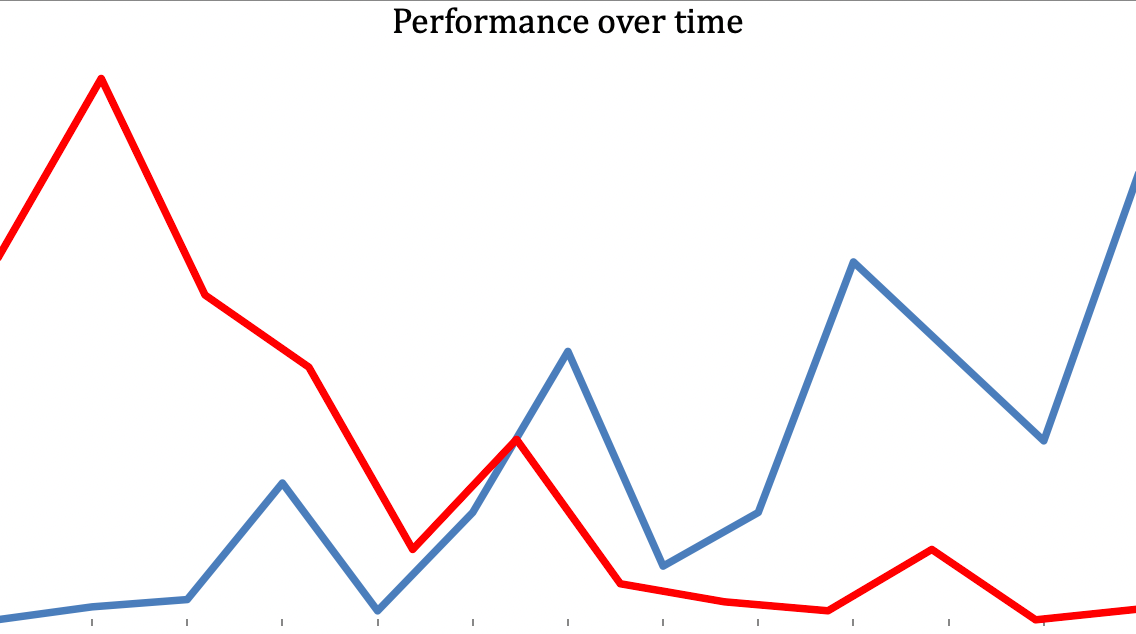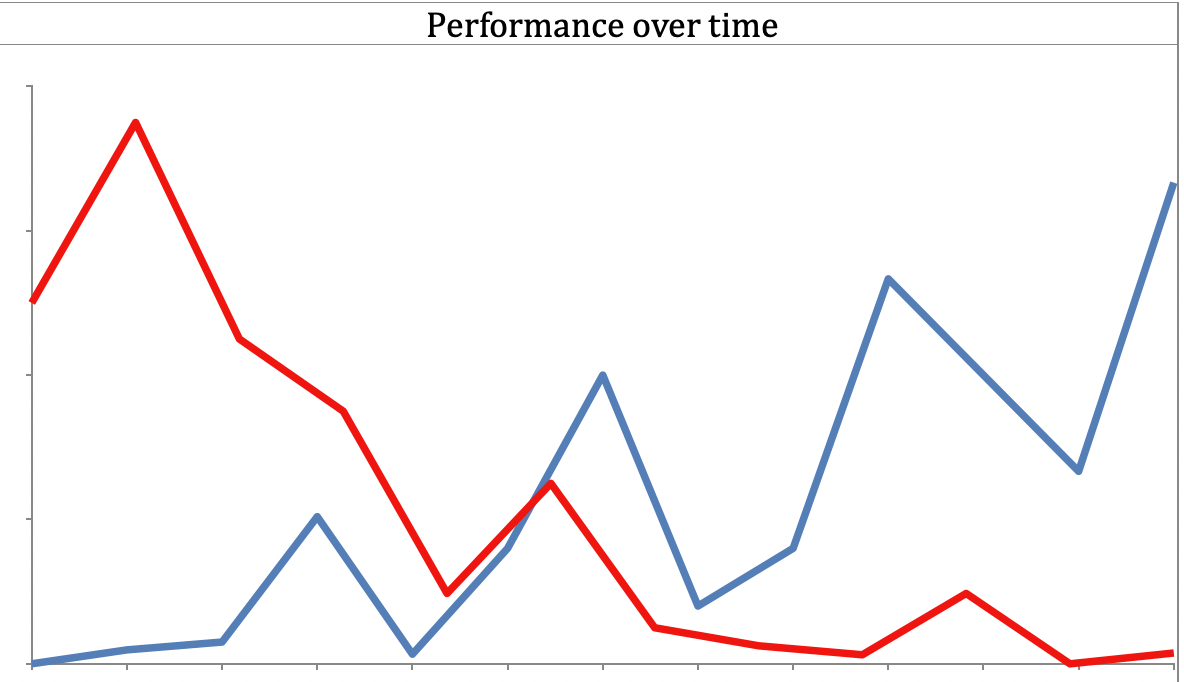Mistakes are less important than fighting back
This article is from my list of nine surprising high performance lessons from Hell’s Kitchen. The show is chock full of swearing, apologies for any colourful language that finds its way in here.
Summary
The ability to quickly learn from, resolve, and make fewer of the same mistakes is a sign of high performance.
Bottom performers get stuck, wallow, blame, make excuses, fail to learn, fail to be resilient, and fail to have self awareness.
- You are allowed to suck at first, as long as you get better (preferably quickly)
- Be resilient
- Own your error and move on
- Identify your trend, and if needed correct it
Asking for help is not a sign of weakness, but that’s a different lesson.
A cool spring morning has more promise than one with the same temperature in the fall
Trajectory
(SPOILER) In season 11 a butcher named Mary struggles out of the gate. She does not have the culinary experience of the others. It turns out she knows her proteins (the most expensive and important parts of the dish), she is a fast learner, and she bounces back after screwing up and being yelled at by chef.
She consistently trends up.
She has minor set backs that she quickly bounces back from and like a good mutual fund continues to go up and up. This happens over and over again, wash, repeat. She makes it to the final, beating out 16 other chefs.
In the meantime, countless Executive Chefs start strong, (or seem to), then fail as they make mistakes, get yelled at, and can’t recover. If you can’t take the heat…

Who’s a better performer?
The highly skilled person who has a great history of performance, but in the last couple of days/weeks/months/years has been struggling; or the fish out of water who has been knocking it out of the park for days/weeks/months/years?
Chef Ramsey will tell you that if the highly skilled person can’t turn themselves around, it is definitely the up and comer.
There is a difference between being a top performer, and having been a top performer.
The learning curve

No one’s curve goes straight up. Sustained success requires on going learning, and success is a hard place to learn from. We need mistakes to learn.
“success can breed failure by hindering learning”¹
What do leaders do?
“Challenge and nurture”²
Chef manages these situations well, with short, clear, converastions. To someone on the upswing he will say something, like:
You really know how to cook. I want to see more of your leadership.
To a top performer who is struggling Chef will start with a small intervention:
You’re struggling. You’ve got to focus. You’ve got to bounce back.
To a strong performer who is too focused on themselves:
Your cooking is fantastic. I need to hear your voice. Speak up.
If the person comes up for elimination followed by an even more blunt message. Maybe:
I wonder if you are done. I don’t know that you have anything left to give.
Top vs bottom performers
Remembering the graph above can be helpful. No one is good at tennis³ the first time they play (other than my friend Chris who is inherantly good at all sports). We all suck, then we get better.
The trick is not getting stuck in your mistakes. Instead the best of us fight back.
By itself, making mistakes is not a sign of top or bottom performance. Making a ton of mistakes could be a sign of bottom performance, or of a top performer stretching. Making no mistakes could be a sign of sandbagging to preserve safety, or the incredible performance.
The separator is the type of mistakes, and what happens next.
Whether trending up or down it is up to the contestant, the employee, (us) to deliver. Your leader can’t do your job, you have to. Chef Ramsey’s not going to cook your scallops… unless he really needs you to learn how. If he does, you had better nail the next one because one of the world’s best chef’s just gave you a personal cooking lesson.
Learn fast. Trend up.
Top performers listen, ask for help, and apply the lesson.
Bottom performers struggle, get in their own heads, fail to learn, do not ask for help, and wash out.
Which way are you trending?
Keep it up, or turn it around.
You got this.
I hope you enjoy this series of performance lessons from Hell’s Kitchen. If you have a comment, feedback, or idea add it below, shoot me an email, or send me a tweet.
Keep reading.
Ian
¹https://hbr.org/2011/04/why-leaders-dont-learn-from-success
²Description of the teaching style of Dorthy Delay (who taught Itzhak Perlman at Juliard, among others). “Mindset: The new psychology for success” by Carol S. Dweck
³Tennis here is a metaphor for all new things. Except in reference to Chris who is oddly good at any sport, especially those with sticks/rackets and balls. This was a favourite of a great (tough) boss I had for a while. No one is good at first. They practice and play a lot and get coaching, then they are good.

